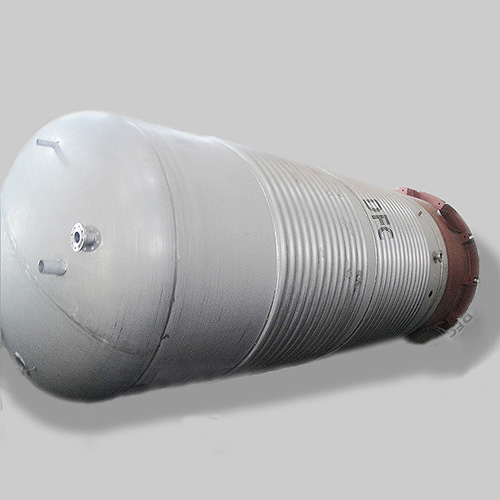The main influencing factors of corrosion in pressure vessels
External environmental reasons
The internal and external environment of the pressure vessel will directly affect its corrosion resistance. Pressure vessels can carry a large number of reagents, and the cost of the substances contained therein is high. So it is inevitable that some corrosive materials, such as acidic, and alkaline materials, may be mixed, and these components are likely to cause corrosion of the pressure vessel.
The external environment causes corrosion to the pressure vessel in various forms. First, when the pressure vessel is corroded during application, the increase of internal pressure will play a significant catalytic role, accelerating the corrosion reaction, and thus deteriorate the corrosion problem. Second, the temperature in the pressure vessel will accelerate the reaction speed because as the temperature rises, the ion flow speed increases. And every 10 ℃ increasing, the chemical reaction rate will accelerate by 2-3 times. Third, the internal acid-base environment will catalyze the reaction rate, and in the different acid-base environment, the internal ion content will be different.
Material characteristics
The material properties of the pressure vessel greatly influence and determine the level of corrosion resistance of the pressure vessel itself. First, the corrosion rate will be affected by the density and oxidizing property of the surface crystal structure. The larger the crystal structure density, the rougher the surface, the larger the intergranular gap, and the more likely the corrosion reaction occurs. Second, when using the pressure vessel, if the internal pressure is high due to the large pressure of importing medium and the internal calcination, the pressure vessel may deform and cause a corrosion reaction. If H2S is inside the vessel, then the pressure vessel is likely to be corroded. Third, if the material composition of the pressure vessel is disordered, the electrochemical corrosion reaction rate will be accelerated. In such a pressure vessel, it is easy to generate the galvanic reaction. If there is an inert material inside, the metal corrosion rate will be accelerated.
Precautions of pressure vessel corrosion
Improve the external environment
Improving the external environment can prevent corrosion of the pressure vessel, which mainly involves two suggestions, one is that it is better not to use pressure vessels in a working environment with high temperature and high humidity. And the other is to adopt electroplating and to add a corrosion inhibitor on the medium. The electroplating method mainly refers to by applying the electrolysis principle, a metal layer that can improve the oxidation is set on the electric conductor so as to effectively prevent stress corrosion.


 English
English Español
Español русский
русский